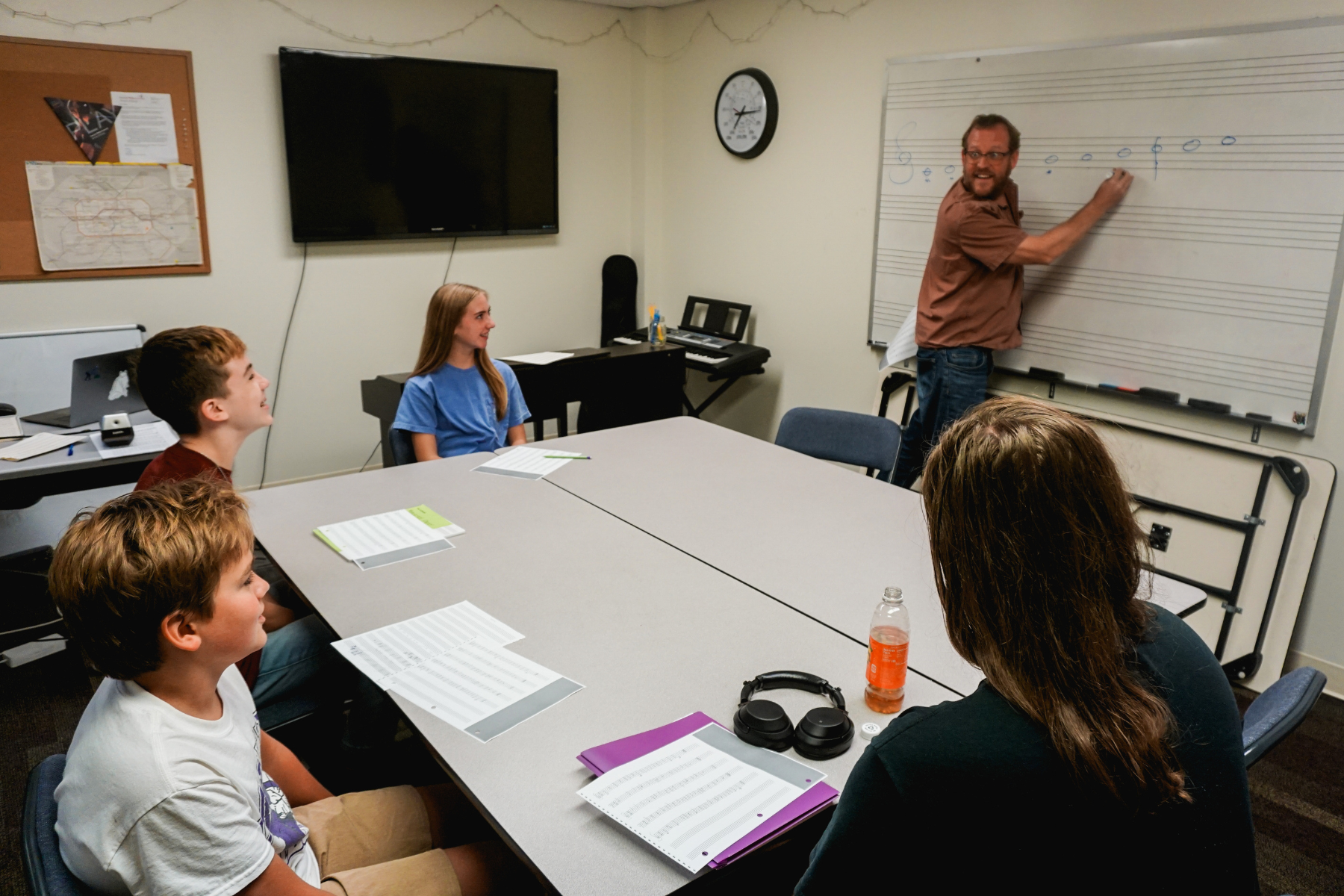








Spring Semester 2024 is ending soon. If you are interested in enrolling in Music Theory this Fall, please contact us by emailing info@thebart.org or giving us a call at (918) 794-0330. We are happy to set up one-on-one Music Theory tutoring this Summer, which will begin June 3rd and go through July 26th.
Whether you are studying privately with one of our bART instructors or studying privately outside of our school, our music theory classes are open to young musicians of all levels. The study of music theory is indispensable to the development of literate, well-rounded musicians. Intertwined with history, this class provides students with a sense of artistic chronology, repertoire, and an awareness of varied styles and style periods. This includes the study of musical training from a variety of cultures and traditions from Western and Eastern global classical traditions to a more contemporary understanding of popular nomenclature. Music theory develops the “seeing ear” (the ability to hear music and know how it should look in notation) and the “hearing eye” (the ability to see music and know how it should sound).
Course Goals: In this class, your child will have the opportunity to:
Age Group: This class is intended for students 13 and up. A short consultation and/or placement exam with the instructor may be required to determine your child’s level.
Class instances: Once a week for 60 minutes. January 8th through April 29th. Mondays from 7:00-8:00pm. *14 sessions. We will be closed 1/15 for Martin Luther King, Jr. Day, 2/19 for Presidents’ Day, and 3/18 for Spring Break.
Class materials/prerequisites:
Tuition: $350/semester
Instructor: David Broome